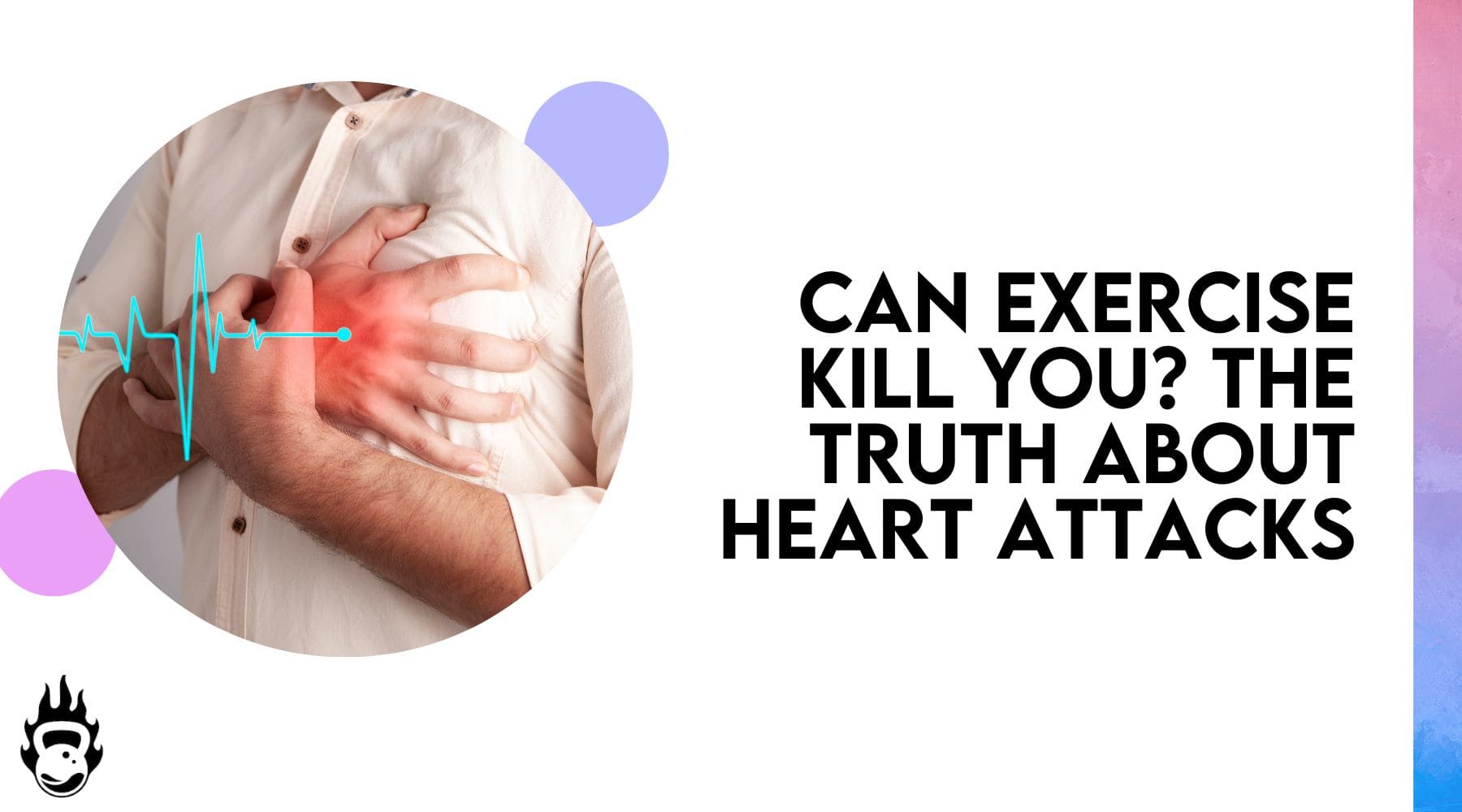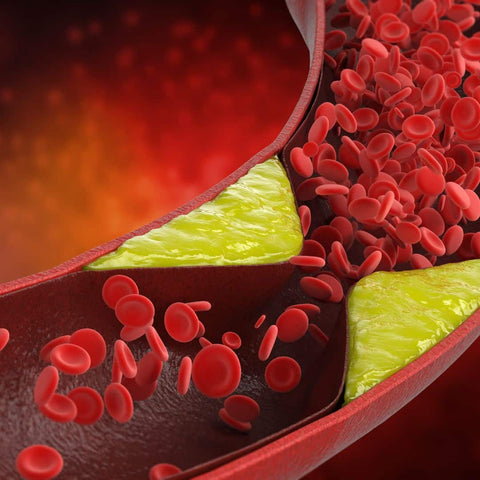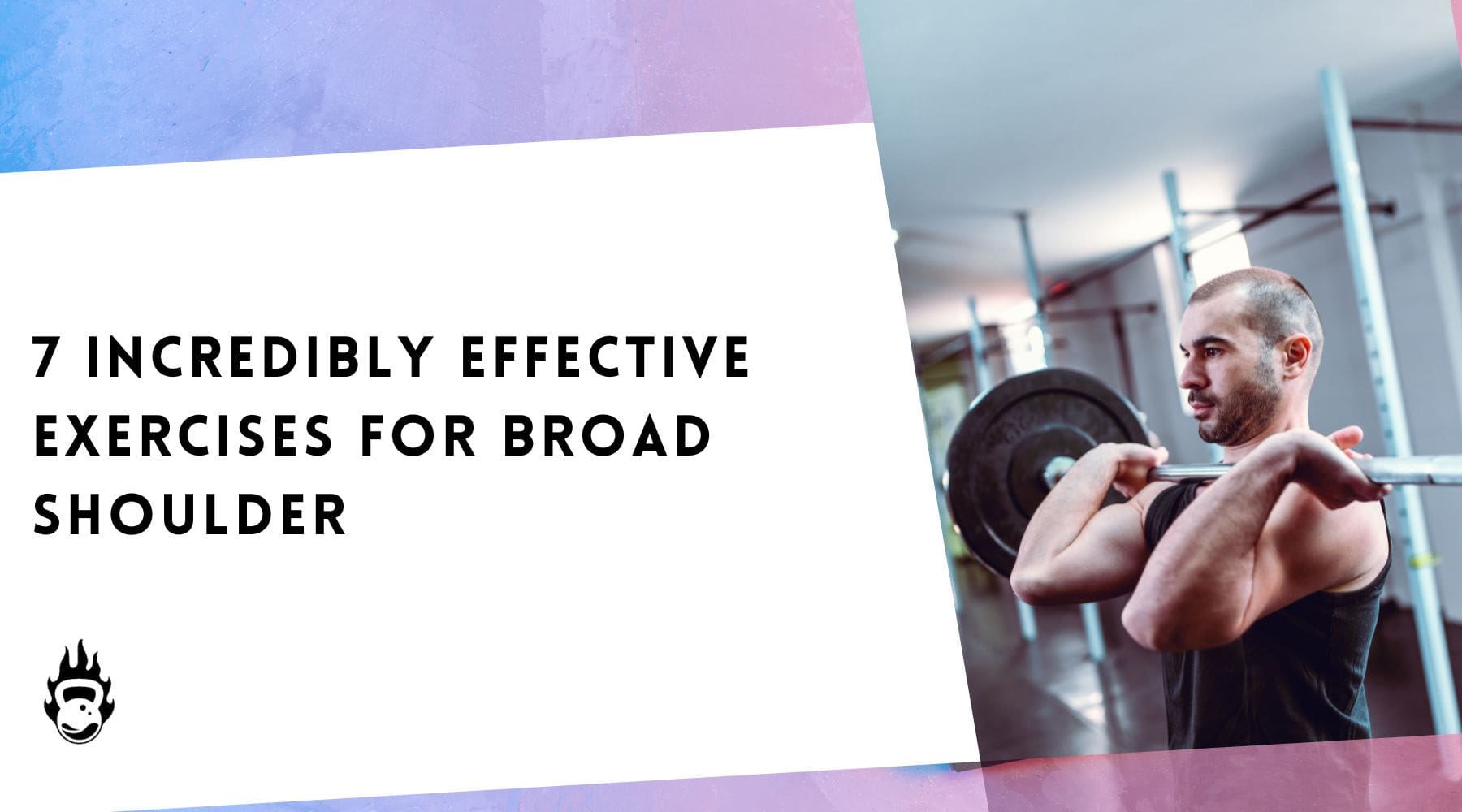Can Exercise Kill You? The Truth About Heart Attacks

We often hear about how exercise is good for us.
A 2022 study shows that even performing 11 minutes of moderate-intensity physical activity daily can help reduce the risk of heart disease, stroke, and several cancers. Another 2022 study published in the European Journal of Preventive Cardiology suggests that people can lower their chances of heart disease and stroke by exercising in the mornings!
However, recent tragic events involving Indian celebrities such as Puneeth Rajkumar and Raju Srivastava who suffered heart attacks while working out in the gym, have raised questions and concerns about the potential risks of exercise on heart health.
So let’s delve into this question: Can exercise cause heart attack?
Can exercise cause heart attack?
Yes, it is possible for exercise to cause heart attack, especially in people who are predisposed to heart disease.
A 2018 study showed that the combination of high-intensity physical activity in the presence of known cardiovascular diseases was the major cause of exercise-related fatalities.
You might like: How Long Should I Work Out For?
Why exercise can lead to heart attack
There are several reasons why exercise can cause heart attacks.
1. Development of coronary atherosclerosis
Coronary atherosclerosis is a condition where fatty deposits, known as plaques, build up in the arteries that supply blood to the heart. Over time, these plaques can harden and narrow the arteries, reducing blood flow to the heart muscle and leading to a heart attack in some cases.

As per a January 2023 study published in Circulation (AHA), it was found that very vigorous-intensity exercise (≥9 MET hours/week) was associated with the progression of coronary atherosclerosis in middle-aged and older male athletes.
2. Coronary plaque rupture
High-intensity exercise can also cause a heart attack by triggering an abnormal heart rhythm or inducing a rupture in the pre-existing plaque in one’s coronary arteries.
This plaque rupture could be triggered either due to
- Increased wall shear stress (due to high BP/ heart rate) or
- Plaque disruption caused by coronary artery spasms or increased flexing of diseased coronary arteries.
(Wall shear stress is the frictional force exerted by flowing blood on the artery wall.)
3. Over-exertion
Sure, you need to push yourself if you want to see results. But excessive exercise can cause heart attack by placing unnecessary strain on your heart.
When you push yourself beyond your body’s capacity, it increases the heart rate, and blood pressure which disrupts the balance between oxygen supply and demand in the heart.
Over-exertion can also lead to an increase in stress hormones which again can strain your heart.
4. Dehydration
Not drinking enough water during exercise can lead to dehydration that disrupts the electrolyte balance in the body which can potentially lead to arrhythmias or irregular heartbeats.
Severe dehydration can also cause changes in your blood pressure and heart rate leading to heart spasms. This could be fatal, especially in people with existing heart conditions.
You might like: Taking A Bath After Exercise : What You Need To Know
How to avoid heart attacks while exercising
Here are a few precautions you can take to avoid heart attacks while exercising.
1. Get medical clearance
If you have risk factors such as hypertension, diabetes mellitus, smoking, etc., or have a family history of heart disease, ensure that you get a cardiovascular evaluation done, before starting a new exercise routine.

If you’re above 30 years of age, it is best to get preventive check-ups such as ECG, ECHO, etc. done annually to identify any asymptomatic blockages in the coronary arteries and receive appropriate treatment if necessary.
2. Know when to stop
Pay attention to any warning signs when you exercise, including
- Chest pain
- Sudden, unusual shortness of breath
- Dizziness
- Nausea
- Palpitations
- Pain in the left shoulder, throat, back, neck, or jaw
If you experience any of these symptoms, stop exercising and seek medical attention immediately.
3. Stay hydrated
Keep sipping on water during your workouts. If you’re engaging in high-intensity exercise, we recommend drinking ORS or energy drinks to replenish all the minerals lost while sweating.
4. Progress gradually
Avoid sudden, drastic changes in the intensity, duration, or frequency of your exercise routine. Once your body has adapted, gradually make the necessary changes.
5. Maintain a healthy lifestyle
Keep your heart healthy by avoiding (or at least reducing) alcohol, smoking, and junk foods.
You might like: Does Exercise Make Your Skin Glow: Answered By Experts
Conclusion
We hope you now understand that very vigorous exercise can cause heart attacks but only if you don’t take the necessary precautions.
So remember to take a balanced and cautious approach to exercise, listen to your body, hydrate yourself and seek medical advice before a new exercise routine. Your heart will thank you for it!





Leave a comment